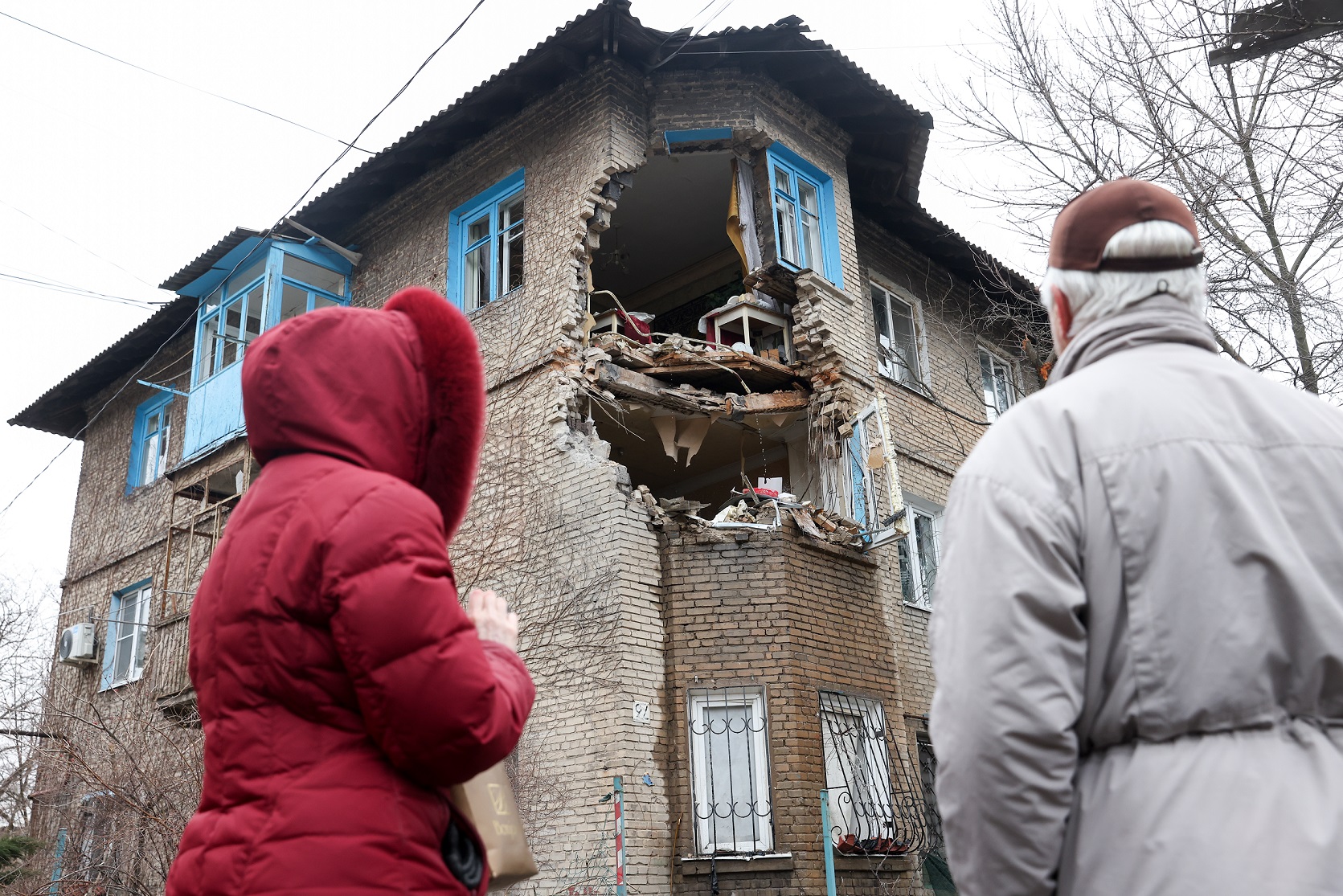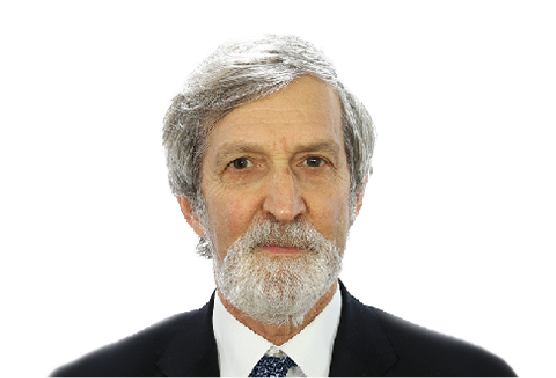The war in Ukraine continues. At this stage, Russia's primary goals – gaining control of the capital of Kiev, ousting the current Ukrainian government, and replacing it with a government friendly to Russia – have not yet been achieved. The Russian military thrust is in three main directions: toward Kiev from the north; toward Kharkov, Ukraine's second largest city, from the northeast; and forces moving northward from the Crimean Peninsula. Fighting is also underway in the Donbas region on Ukraine's eastern border. According to the Institute for the Study of War in Washington, as of February 26, the Russian forces had failed to achieve aerial superiority in Ukrainian airspace. Furthermore, fierce battles are apparently underway, and reports state that Ukrainian forces are enjoying considerable success in hindering the Russian advance, especially in the Kiev area. The Russian army has thus far failed to surround and isolate the Ukrainian capital. Ukrainian President Volodymyr Zelensky has demonstrated leadership, inspiring the Ukrainian forces and encouraging civilians, and has been able to obtain military aid from the West. At the same time, it is unclear whether the negotiations between the Ukrainian government and Moscow will yield any concrete results.
As of now, the United States, Great Britain, and the European Union are fully coordinating their response, with a focus on three areas:
Economic and political isolation of Russia: A long list of sanctions to be imposed on Russia and Russian individuals has been made public in recent days, and it includes Russian President Vladimir Putin himself. Prominent in this context was the announcement on February 26 of a plan to cut off a series of Russian banks from the SWIFT banking system, and to deprive the Russian central bank of its ability to utilize its reserves to thwart the efforts to impose sanctions on Russia. The full details have not yet been published, but this significant escalation apparently indicates the existence of a consensus on imposing comprehensive and paralyzing sanctions on Russia. In this context, the White House announced that a Transatlantic task force would be assembled in the coming days for enforcing the sanctions imposed on assets of Russian companies and oligarchs.
Supply of military aid to Ukraine: The European Union announced that it would coordinate efforts to supply arms to Ukraine to assist the Ukrainian army. Important in this context was the announcement by German Chancellor Olaf Scholz that Germany would supply 1,000 anti-tank missiles and 500 Stinger antiaircraft missiles to Ukraine, and that approval had been granted to the Netherlands government to supply German-manufactured anti-tank weapons to Ukraine and to the Estonian government to supply howitzers to Ukraine. These decisions by the German government constitute a historic change in German policy on arms exports.
Stepped-up military preparations among NATO countries: In a special meeting of leaders of NATO countries on February 25, agreement was reached on an unprecedented response against Russian aggression: the activating of a Very High Readiness Joint Task Force with 40,000 soldiers from 30 alliance countries, among them the United States. The US Department of Defense confirmed that the United States had placed 12,000 American soldiers on call for aid to NATO. At the same time, the administration continues to promise that American soldiers will not fight on Ukrainian soil.
It is premature at this stage to fully assess the consequences of the Russian invasion of Ukraine with respect to both developments on the battlefront and their direct and indirect implications for Russia, the West, and the international theater in general. It is nonetheless already clear that Russia's action has upset the world order that has existed since the end of World War II, and is likely to prompt repositioning in the entire order, among the various international actors, and in NATO's defense policy in general and its policy toward Russia in particular.
For President Putin, consolidating Russian control over Ukraine is a historic mission, albeit merely an intermediate step in his effort to shape a new international order that advances Russian interests, with an emphasis on a NATO commitment to avoid getting close to Russia's borders. It is likely that Russia will strive to overthrow the government in Kiev and to avoid a prolonged conflict (that might not achieve its goal). It is believed that after completing its takeover, Russia will devote renewed efforts to pressure the West in order to advance its strategic ambitions. Some believe that exacerbating tension in the Middle East is on Moscow's agenda. At the same time, there are signs of tension in the Russian regime following disappointment with the Russian army's achievements, and disagreement in this context between Putin and the army hierarchy, given the sanctions against Russia, and even of public unrest. All these factors are likely to fan Russia's desire to end the conflict as soon as possible, but in combination with an effort to promote dialogue/negotiations over the terms for ending it.
It appears that the West, led by the United States, which announced in advance that it would not send combat forces to Ukraine, understands the fateful nature of the occasion and the grave consequences likely to accompany Russian success in consolidating its control over Ukraine, especially for President Putin's drive to continue to challenge the West. This is what lies behind the tough and determined line that the United States and European countries are taking in order to intensify the pressure on Russia, and to both exact a major price for the invasion of Ukraine and deter Russia from carrying out its threats against other countries, especially NATO members. In addition, it appears that it is clear to the United States and the European Union that hesitation will merely make Putin more self-confident and increase the danger that the war in Central Europe will spread to other regions.
The full coordination between President Biden and the US administration on the one hand and his counterparts in Europe and Canada on the other stands out against this background. Even if there were disagreements among them concerning the scope and pace of the measures mandated by Russian assertiveness, it is clear to them that a policy must be formulated that will thwart Putin's intention of dictating processes in Europe. Even if Ukraine falls into Russia's hands despite the efforts to assist it, the emerging danger to other countries must be contained. NATO must make clear beyond any shadow of doubt the consequences of a Putin decision to attack a member country. NATO is now emerging as the leading element in European security, after having been in decline for years. The member countries, led by the United States, are devoting thought and many resources to strengthening its military capability to achieve its goals – joint defense of its members' security. Furthermore, it has been reported that the possibility of joining NATO is also being discussed in Finland (which has a long border with Russia) and Sweden.
The crisis in Ukraine is a test of the US administration, and it is clear that its response to this challenge will also directly shape the attitude toward President Biden's leadership, both in the American internal theater, especially in advance of the mid-term Congressional elections scheduled for November 2022, and in the international theater. Beyond this, even if the attention of the international theater has been diverted in the direction of Russia, the threat from China still exists for the United States, and the administration's handling of the current events in Europe will likely affect China's future conduct and readiness to pose challenges, such as a direct threat to Taiwan's sovereignty.
The consequences for the Middle East require a separate discussion (see a special publication by the Institution for National Security Studies on February 21). Nevertheless, it appears that Israel and other countries continue in their cautious stance. In order to avoid angering President Putin, and in view of their interests vis-à-vis Russia, Israel refused an American request to co-sponsor a resolution condemning the invasion, while the United Arab Emirates, a temporary member of the UN Security Council, abstained in the vote on the resolution.
At the same time, Israel must take into account that a broad coalition is forming in the international theater, and especially among the Western countries, under clear United States leadership. This coalition speaks collectively against Russia and its president, and is willing to pay an economic price and to take risks in order to thwart challenges to the existing order. Notwithstanding its goal to maintain good relations with Russia, and thus not jeopardizing its ability to continue its military operation in Syria and Iraq, Israel has decided to side with the US and the West in condemning the Russian aggression at the upcoming General Assembly debate.










0 comments: